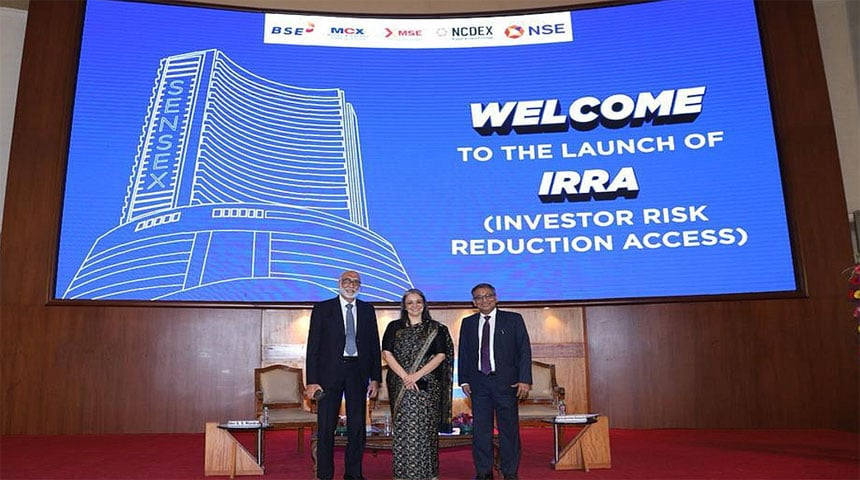INVESTOR RISK REDUCTION ACCESS PLATFORM

Copyright infringement not intended
Picture Courtesy: www.moneylife.in
Context: Investor Risk Reduction Access (IRRA), a collaborative effort of major stock exchanges such as BSE and NSE, serves as a safety net, enabling investors to manage positions/orders during technical glitches at their broker's end, ultimately mitigating risks.
About the Investor Risk Reduction Access (IRRA) platform
- The IRRA platform is developed jointly by major stock exchanges like BSE (Bombay Stock Exchange) and NSE (National Stock Exchange) to provide a safety net for investors in case of technical glitches faced by trading members or stock brokers registered with SEBI.
- Its primary objective is to mitigate risks for investors by allowing them the opportunity to manage their positions and orders during disruptions at the stock broker's end.
Why was the IRRA platform needed?
- Increasing Dependence on Technology: The stock market heavily relies on technology, leading to a rise in technical glitches. These disruptions can result in service interruptions and pose risks to investors, especially when markets are volatile.
- Limited Options for Investors during Glitches: Investors with open positions might face challenges closing their positions during disruptions, which prompts the need for a contingency service.
How does the IRRA platform operate?
- Invocation and Functionality: Trading members or stock exchanges can invoke the IRRA platform in the event of technical glitches impacting their ability to serve clients. Once invoked, it allows investors to cancel pending orders, square off open positions, and manage orders across segments and exchanges.
- Monitoring and Activation: Stock exchanges monitor various parameters and can initiate IRRA even without a specific request from the trading member, ensuring swift action during disruptions.
- Access for Investors: Investors can access the IRRA platform through a secure login system using their Unique Client Code (UCC) or PAN number. Authorization is granted via one-time passwords sent to registered mobile numbers and email IDs.
Benefits for Investors:
- Enables viewing and cancellation of pending orders, closing open positions across segments and exchanges during technical disruptions.
- Provides an alternative platform accessible via a specific web URL and mobile application for managing investments during unforeseen contingencies.
- Trading members can request migration to the IRRA platform before or during market hours in case of technical issues. Efforts to restore primary and disaster recovery sites are prerequisites.
- Trading members can request a return to their original systems after resolving issues. However, there are limitations on the number of allowed reverse migrations within a trading day.
Conclusion
- The IRRA platform is a crucial safety mechanism introduced by Indian stock exchanges to safeguard investor interests during technical disruptions in trading systems. It empowers investors to manage their positions and orders, providing a safety net during unforeseen contingencies while ensuring certain limitations and operational guidelines to maintain market integrity and stability.
Must Read Articles:
Securities and Exchange Board of India: https://www.iasgyan.in/daily-current-affairs/securities-and-exchange-board-of-india-sebi
|
PRACTICE QUESTION Q. Consider the following case study: XYZ Corporation is a newly formed company planning to raise funds from the public by issuing shares. As part of their strategy, they are considering an Initial Public Offering (IPO). They seek guidance on the regulatory requirements from SEBI. What is the primary role of SEBI in the context of XYZ Corporation's plan for an IPO? A) Ensuring profitability of the company B) Overseeing fair trading practices and protecting investors' interests C) Dictating the company's share pricing D) Facilitating corporate mergers and acquisitions Answer: B Explanation: ● SEBI's primary role is to regulate and oversee the securities market in India. In the context of an IPO, SEBI's focus lies in ensuring fair practices, safeguarding the interests of investors, and maintaining transparency in the market. While it promotes a fair and healthy market environment, it does not intervene in setting specific share prices or ensuring company profitability. |





1.png)
